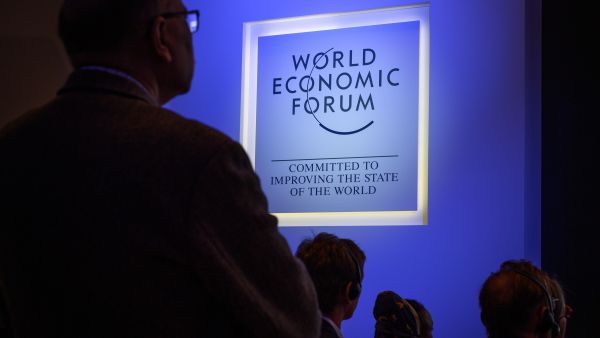As world leaders, economists, and global stakeholders arrive at Davos in the Swiss Alps to take part in the 50th annual event organized by the World Economic Forum, the rest of the world looks closely hoping for remarkable changes in economic policies to help make the world a better place.
At a time when the Arab world is struggling to cope with unprecedented economic challenges and a fresh wave of uprisings, the forum could provide an opportunity for hope for states that have long been eager to emerge from years of turmoil.
Davos 2020: Everything you need to know https://t.co/Xuw3K48Svc #wef20 pic.twitter.com/NqVLn7MnmU
— World Economic Forum (@wef) January 20, 2020
More than 700 public speakers and experts are expected to assemble in Davos between the 21st and the 24th of January.
The list includes notable figures from the Middle East. Jordanian Prime Minister Omar Al Razzaz, Lebanese Foreign Minister Gebran Bassil, Emirati businessman Hussain Sajwani, and Tunisian politician Rached Ghannouchi are scheduled to participate in talks, in addition to a number of Arab activists and entrepreneurs.
WEF 2020 features a jam-packed schedule of 125 events under a variety of themes like geopolitics, technology, business, the environment, and more.
To make your life easier, we've put a list together of the key WEF sessions you'll want to follow if you're in the Middle East.
1. Redesigning Democracy in the Digital Age
Tuesday, January 21st - 8:45 AM (GMT)
Economist and Principal Researcher at Microsoft Research New England Glen Weyl will take the chance to talk about radical solutions that can facilitate the process of societal decision making in the era that has witnessed the most revolutionary technological advancements.
Glen Weyl: "Radical democracy addresses the legitimate interests of members of society unlike the one-for-one voting system." pic.twitter.com/oiwNXCOz2b
— IFI at AUB (@ifi_aub) February 27, 2018
2. Strategic Outlook: Middle East Economies
Tuesday, January 21st - 12:00 PM (GMT)
The World Economic Forum at 50: a timeline of highlights https://t.co/8dDNkZe8kz #wef20 pic.twitter.com/WQYQPYiZH0
— World Economic Forum (@wef) January 19, 2020
In a geopolitically challenging region, Middle Eastern decision-makers have the responsibility to acknowledge the aspirations of their people, especially young generations, and try to tackle persistent issues like high rates of unemployment and slow growth rates. The panel will shed light on future plans of economic reforms and further inclusion of women in the workforce, in light of a looming fourth industrial revolution that is expected to reshape the job market and business sector in the whole world.
Keynote Speakers include Prime Minister of the Palestinian National Authority Mohammad Shtayyeh, Egyptian Minister of Tourism Rania Al-Mashat, and Saudi Minister of Communications and Information Technology Abdullah Alswaha.
3. The Role of Faith for a Cohesive and Sustainable World
Tuesday, January 21st - 16:15 AM (GMT)
These are all the world's major religions in one map https://t.co/aPtTDVA6Fo #religion #faith pic.twitter.com/AjCLdnBw69
— World Economic Forum (@wef) June 2, 2019
According to WEF, 84% of the world population identifies with a religious group. This talk explores the role faith can play in building and promoting cohesion and sustainable relations among societies, while the world struggles with an urgent climate crisis.
Speakers include secretary-general of Religions for Peace Professor Azza Karam, president of Shanti Ashram Kezevino Aram, in addition to chairman of the Nishkam Group of Charitable Organisations Mohinder Singh Ahluwalia.
4. Geopolitical Outlook: The Middle East and North Africa
Wednesday, January 22nd - 8:00 AM (GMT)
In this talk, decision-makers from several Middle Eastern countries will weigh in with their expectations regarding the ongoing conflicts in addition to discussing the geopolitical aspects of events that could trigger a global crisis during 2020.
Stratfor Middle East and North Africa Analyst, @Ryan_Bohl, highlights three key geopolitical trends for the coming year. Read more of our #2020forecast here: https://t.co/3lyr9biEty pic.twitter.com/v1LvStj5R8
— Stratfor (@Stratfor) January 17, 2020
Speakers include Jordanian Prime Minister Omar Al Razzaz, Omani Minister for Foreign Affairs Yousuf Bin Alawi Bin Abdullah, and Turkish Foreign Minister Mevlüt Çavuşoğlu.
5. The Return of Arab Unrest
Thursday, January 23rd - 12 PM (GMT)
As protests continue to rock many Arab states after almost a decade since the start of the Arab Spring, citizens are calling for an end to corruption and demanding better living conditions. The panel explores the lessons that have been drawn from past experiences to help countries in the region to achieve positive changes peacefully.
The Return of Arab Unrest https://t.co/9k0UQIaA1D via @wef
— Ruwayda Jurdi (@JurdiRuwayda) January 20, 2020
Speakers include Lebanese Foreign Minister Gebran Bassil, Tunisian politician Rached Ghannouchi, Emirati businessman Hussain Sajwani, and Dutch politician and diplomat Sigrid Kaag.
WEF will also see US President Donald J. Trump, the German chancellor Angela Merkle, Prince Charles of Wales, President of the European Central Bank Christine Lagarde, in addition to the young Swedish environmental activist Greta Thunberg play a prominent role.







